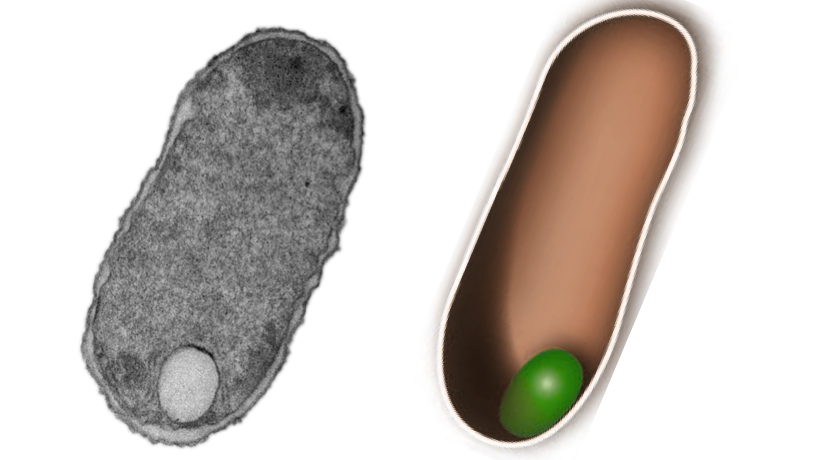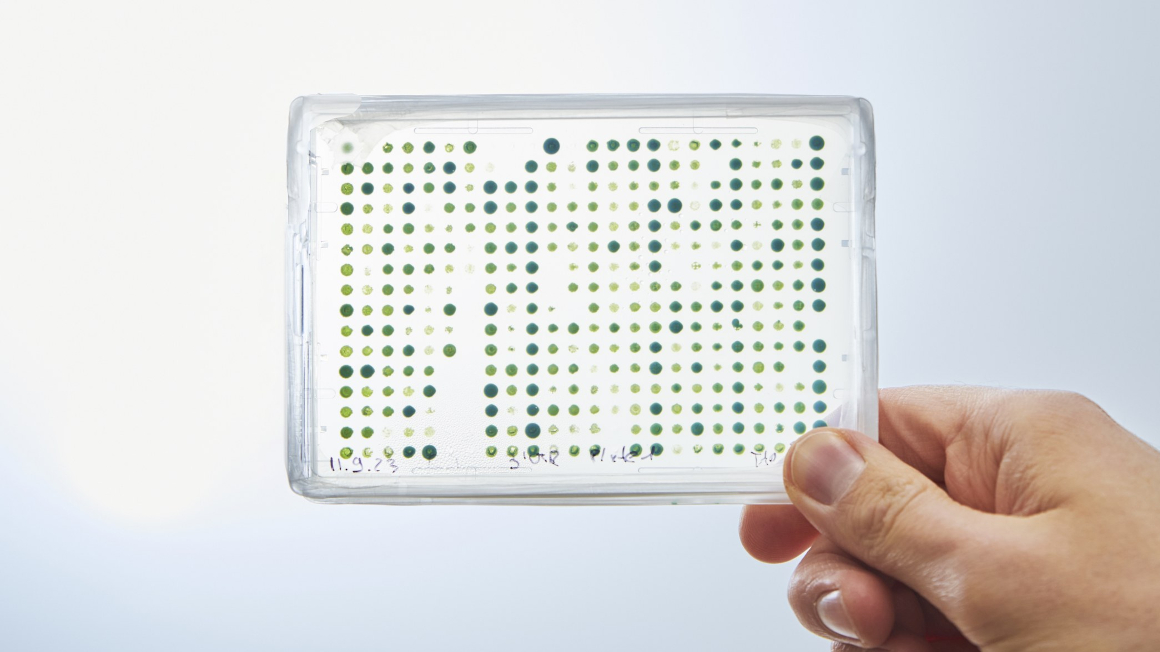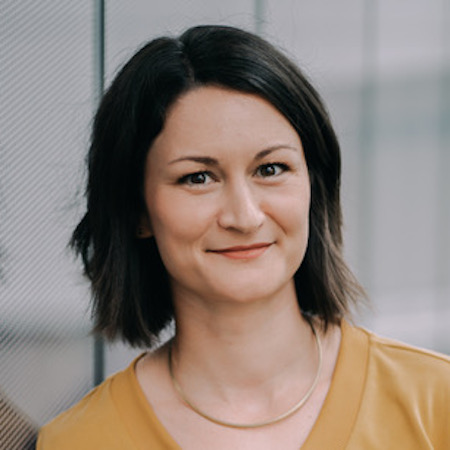Interior designer of cell factories
Stefan SchillerProfession:
Biochemist
Position:
Head of the research group in the Freiburg Institute for Advanced Studies (FRIAS) at the Albert-Ludwigs-University Freiburg

Profession:
Biochemist
Position:
Head of the research group in the Freiburg Institute for Advanced Studies (FRIAS) at the Albert-Ludwigs-University Freiburg

Cells are living factories, each containing numerous reaction chambers. The Freiburg-based chemist Stefan Schiller wants to give cells entirely new chambers in the form of artificial vesicles, and in this way encourage them to produce new and useful substances.
These ‘designer organelles’ are hoped to lay the groundwork for a universal production organism. The project has won the 43-year-old the Next Generation of Biotechnological Procedures award from the Federal Ministry of Education and Research (BMBF). The millions-strong endowment will fund Schiller’s six-person team over the coming five years. Today, he is setting up his own real-sized reaction chambers at the Center for Biological Systems Analysis (ZBSA) of the University of Freiburg.
In the world of bioengineering, Stefan Schiller is something of an interior designer. His construction materials are biomolecules; his design objects are living cells. “We want to create new artificial reaction chambers in the cells and furnish these in a number of ways, so to speak,” says Schiller. “Throughout, we draw inspiration from biological systems. We create molecular building blocks and components with new designs in order to give cells new properties.” He refers to his area of research as bionic chemistry, also as synthetic biology. Researchers in this field use molecular biological and biochemical know-how to change cells and give them entirely new and useful features.
Even as a schoolboy, the native of Wiesbaden would be happy tinkering with molecules, if on a slightly larger scale. Various oriented experimentation kits gave the future scientist his first connection to – and love of – chemistry. “I was immediately fascinated by the complex molecules and the idea of building them yourself,” Schiller recalls. The young Schiller eventually went on to study chemistry in Gießen, Mainz and at the University of Massachusetts in Amherst, USA, where even at this early stage he was specialised in the synthesis of complex natural macromolecules. In 2003 he completed his doctoral thesis at the Mainz Max Planck Institute for Polymer Research. Not long later he was back over the Atlantic, this time on the West Coast at the renowned Scripps Institute in La Jolla – the Californian research stronghold of San Diego. His four-year postdoctoral studies were completed under the tutelage of Peter Schultz, a pioneer in the field of protein engineering, whose team conducts research into non-natural amino acids used to create novel protein molecules. “I got to know many molecular biological methods here, but also many exciting concepts such as the ‘click chemistry’ developed at Scripps,” says Schiller today. One important finding that he took away with him: “Chemical synthesis and biosynthesis are not mutually exclusive – they can be consolidated.”
A bacterial cell with a designer organelle – these kinds of synthetic hollow structures could be suitable as reaction chambers for biotechnological processes.

Fashioning artificial spaces
It was in Freiburg that Schiller first had the idea of equipping a cell with artificial reaction spaces – so-called designer organelles. In 2008, he began to set up a research group in the Freiburg Institute for Advanced Studies (FRIAS), a part of Albert-Ludwigs-University. The work of the Institute focuses on biohybrid nanomaterials. There, Schiller’s own work involves the use of novel protein molecules as building blocks for artificial vesicles. The molecular blueprints for these are inserted into the laboratory microbe E. coli. “Our bacterial cells produce amphiphilic protein molecules that spontaneously self-assemble in the cell to form hollow structures,” explains Schiller. The bubbles are quite similar to their natural counterparts, the vesicles.
But this is about much more than simple hollow structures. Using a number of clever tricks, the artificial compartments can be tailored for a particular function, for example the production of molecules that would otherwise be toxic to the cells. “In terms of complexity and the possible applications, we have already passed a genuine milestone,” says Schiller. “We now want to test whether our de novo organelles are suitable as reaction chambers for certain biotechnological processes.” The results will be published shortly in the journal Nature Materials.
The universal production organism
Schiller has now also convinced this year’s jury for the BMBF’s Next Generation of Biotechnological Processes research award with his artificial designer organelles and their inherent potential for future biotechnological application. The cell engineer from Freiburg is just the second recipient of the award, which was chosen from the 21 candidates in the Biotechnology 2020+ initiative. “The overarching objective is a universal and modular production organism,” says Schiller. Until that time, there is a great deal of packing to finish – of the macro variety. With his team, the father of two, is moving into the Center for Biological Systems Analysis (ZBSA) in the Botanical Gardens of the University of Freiburg. No doubt he will do an excellent job of giving shape to these somewhat larger spaces, after which the work can begin in earnest.
Author: Philipp Graf


